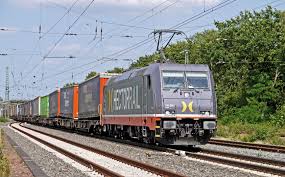Delivering the first phase of HS2
The Swedish multinational construction firm, Skanska AB, announced the signing of the contract with HS2 to commence work on the first phase of the project. As part of the Skanska Costain STRABAG joint venture, Skanska reported that it had signed a contract with HS2 Ltd to commence full detailed design and construction of Phase 1 of the project, enabling it to book £1.12bn in its order bookings for Europe for Q2 2020.
The project to build the first phase of the railway will create an estimated 6,000 jobs according to the firm, and its new contract marks the transition to full detailed design and construction, with expected completion in 2026.
Also on 15 April, Align, a joint venture of Bouygues Travaux Publics SAS (a subsidiary of Bouygues Construction), Sir Robert McAlpine and VolkerFitzpatrick (a subsidiary of VolkerWessels UK) was delivered with a Notice to Proceed to deliver the C1 package of HS2, with a value of £1.6bn. The C1 route consists of 21.6km of high-speed rail infrastructure that includes a 3.37km viaduct across the Colne Valley and a 16.04km twin-bored tunnel with five ventilation shafts.
The decision to go ahead with the HS2 project comes amid a worsening economic outlook for the UK economy. The Office for Budget Responsibility (OBR) estimated that the UK economy could contract by 13% in 2020 and borrowing this year will increase at the fastest rate since the second world war. The increased borrowing will leave government finances in a weak state and would leave the government with the biggest budget deficit since the financial crisis in 2008.
Covid-19: impact on infrastructure projects
It is likely that once the Covid-19 epidemic subsides and the economy returns to normality, the government will embark on an austerity programme consisting of spending cuts and tax rises. In such a scenario, spending on infrastructure projects could be cut with the government’s ‘levelling up’ strategy coming under risk. Growth in the construction sector would be significantly curtailed if such a scenario were to develop.
GlobalData expects output in the UK construction sector to contract by 5.8% in 2020 as the virus outbreak worsens and the lockdown continues, construction works will continue to be disrupted. Prior to the recent escalation in the outbreak of the coronavirus, GlobalData had been expecting a marginal acceleration in construction output growth.
A rebound in the second half of the year is possible if the virus epidemic is contained by mid-2020, however severe downside risks remain, including a second wave of the virus outbreak once the lockdown measures are lifted. Although progress on HS2 is a major advancement, a further downgrade of the growth forecast in 2020 is likely if the health situation worsens in the country such that containment measures are extended.

Freight rail capacity is allocated at the national level for a business that operates across borders.